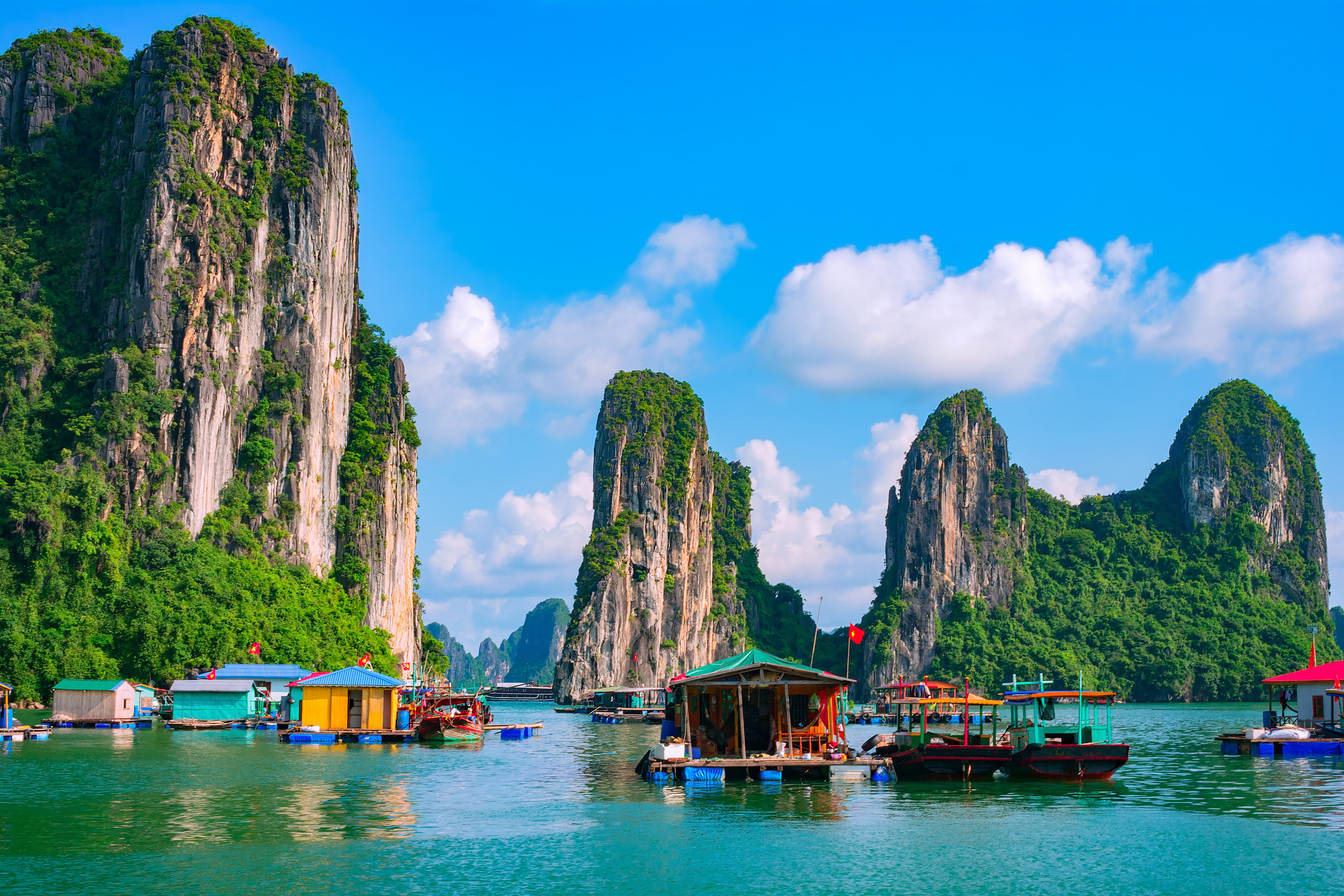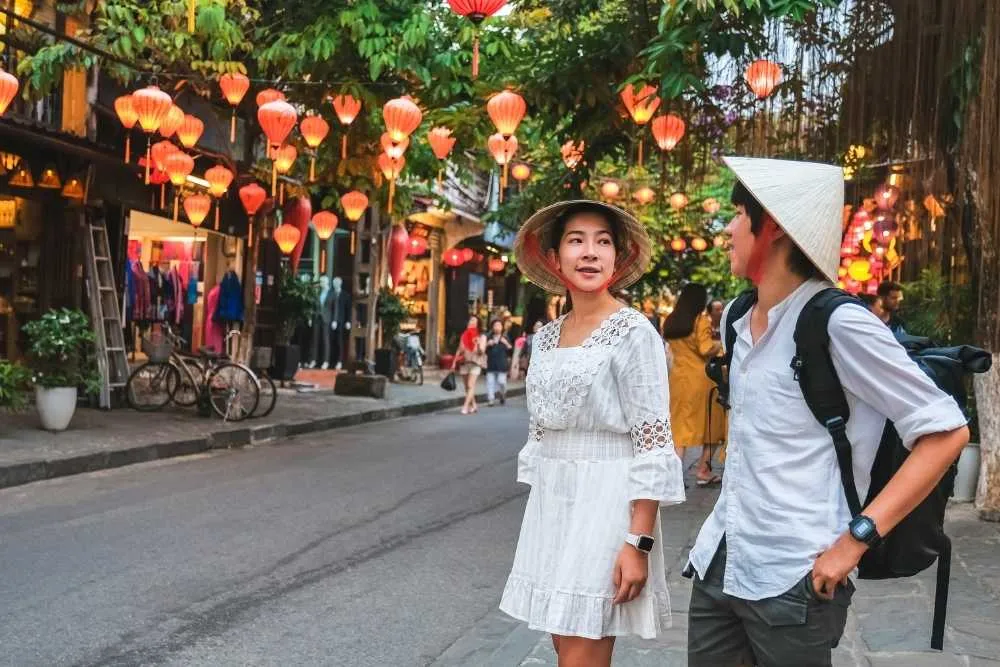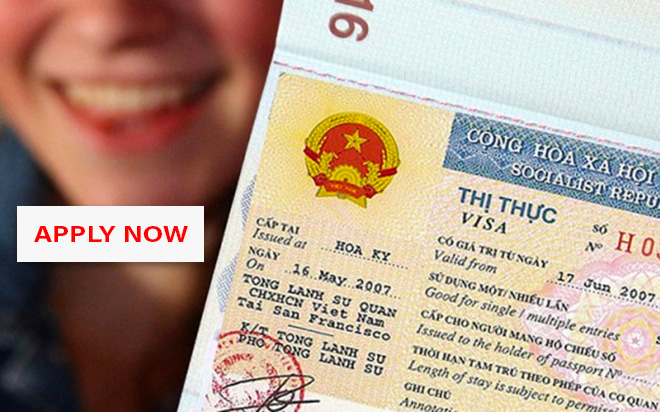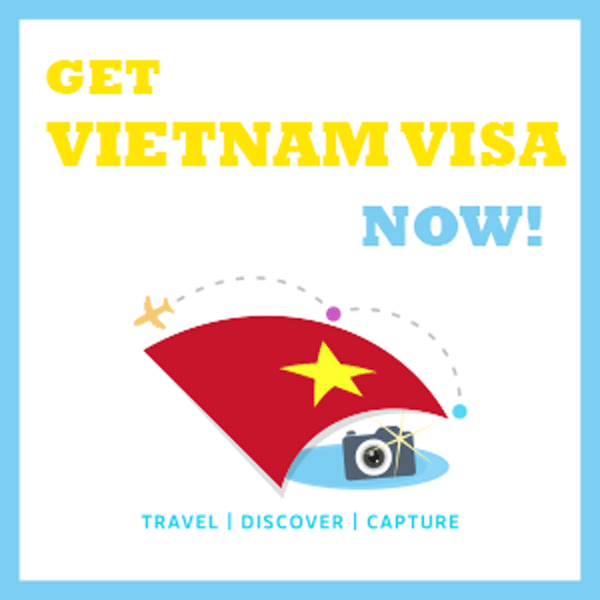Learn about the entry procedures and necessary documents for foreigners visiting Vietnam. Find out the visa regulations, quarantine guidelines, residency permits, work permits, and travel tips for a hassle-free visit to Vietnam. Explore embassy and consular services available for foreigners in Vietnam.
Table of Contents
Vietnam entry requirements for foreigners

Foreigners entering Vietnam typically need a valid passport and a visa, unless they are from a visa-exempt country. The specific entry requirements may vary depending on the nationality of the traveler and the purpose of their visit. It is advisable to check with the nearest Vietnamese embassy or consulate for the most up-to-date information regarding visa requirements. Additionally, travelers should ensure that their passport has at least six months of validity beyond their planned departure date.
Visa regulations for foreigners entering Vietnam

Visa regulations for foreigners entering Vietnam require most visitors to obtain a visa in advance. However, citizens of certain countries may be exempt from obtaining a visa for a specific duration. These exemptions vary by nationality and type of visit. Travelers can apply for a visa through the Vietnamese embassy or consulate in their home country or utilize the e-visa system provided by the Vietnamese government. It is advisable to check the latest requirements and regulations before planning a trip to Vietnam, as they may be subject to change.
Documents needed for foreigners to enter Vietnam
Passport with at least six months validity remaining, a valid visa or visa exemption if applicable, and proof of onward travel (return ticket or itinerary) are the main documents needed for foreigners to enter Vietnam. It is advisable to check the specific entry requirements based on your nationality before traveling.
Quarantine guidelines for foreigners entering Vietnam

Foreigners entering Vietnam are currently subject to quarantine guidelines. Upon arrival, individuals must present proof of a negative COVID-19 test taken within 72 hours before departure. After entering Vietnam, they are required to undergo mandatory centralized quarantine for 14 days. The quarantine period involves staying at designated facilities, such as hotels or government-operated centers, where accommodation, meals, and medical monitoring are provided. During the quarantine, individuals will be tested for COVID-19 multiple times. It is important to comply with all quarantine regulations and follow any additional guidelines set by Vietnamese authorities to ensure public health and safety.
Entry procedures for foreigners visiting Vietnam
Foreigners visiting Vietnam are required to go through entry procedures upon arrival. The specific requirements may vary depending on the purpose of visit, but generally include the following:
- Passport: Ensure that your passport is valid for at least six months beyond your planned date of entry into Vietnam.
- Visa: Check if you need a visa to enter Vietnam. Citizens of some countries are exempt from obtaining a visa for a certain period, while others may require a pre-approved visa or visa on arrival. Verify the visa requirements before traveling.
- Visa on Arrival (VOA): If you’re eligible for a visa on arrival, you must arrange it in advance through a travel agency or an online service. Prepare the necessary documents such as an approval letter, application form, passport-sized photos, and the visa fee.
- E-visa: Some nationalities can apply for an e-visa online before their trip. Visit the official website of the Vietnam Immigration Department and follow the instructions to complete the application process.
- Visa exemption: If your nationality is eligible for visa exemption, ensure you meet the requirements specified by Vietnamese immigration regulations. Typically, this includes limitations on the duration of stay and purpose of visit.
- Arrival Form: Upon reaching a Vietnamese international airport, complete the arrival form provided by the airline or at the airport immigration counter. Fill in the required information accurately.
- Immigration Procedures: Proceed to the immigration counters with your passport, visa, and arrival form. Present these documents to the immigration officer for verification. They may also take your photo and fingerprints.
- Entry Stamp: After successfully completing the immigration procedures, the officer will stamp your passport with an entry stamp indicating your permitted duration of stay.
Note: It is essential to comply with all entry requirements and regulations set by Vietnamese authorities. For the most up-to-date and accurate information, consult the official website of the Embassy or Consulate of Vietnam in your country or contact the relevant Vietnamese immigration authorities directly.
Residency permits for foreigners living in Vietnam
Residency permits for foreigners living in Vietnam are official documents issued by the Vietnamese government that allow non-citizens to reside in the country legally for an extended period. These permits are typically categorized into different types, such as temporary or permanent residence permits.
Temporary residence permits are suitable for individuals staying in Vietnam for a limited duration, such as work assignments, study programs, or investments. They are usually valid for one to three years and can be renewed if needed. To obtain a temporary residence permit, foreigners generally need to provide necessary documentation, including a valid passport, visa, and specific requirements depending on the purpose of their stay.
Permanent residence permits, on the other hand, grant foreigners the right to live and work in Vietnam indefinitely. However, obtaining permanent residency can be more challenging and requires meeting certain criteria set by the Vietnamese government, such as having strong ties to Vietnam, making significant contributions to the country, or being married to a Vietnamese national.
The application process for residency permits in Vietnam involves submitting various documents, such as completed application forms, passport copies, proof of financial stability, health checks, and a clean criminal record. It is advisable to consult with Vietnamese immigration authorities or seek legal assistance to ensure accurate and up-to-date information regarding the specific requirements and procedures involved.
Please note that regulations and requirements related to residency permits may change over time, so it is essential to refer to the latest information from reliable sources or consult with relevant authorities for the most accurate and current details.
Work permits for foreigners in Vietnam
Foreigners in Vietnam are required to obtain work permits in order to legally work in the country. Work permits are issued by the Department of Labor, Invalids, and Social Affairs (DOLISA) or an authorized agency. To be eligible for a work permit, foreigners must have a valid job offer from a Vietnamese employer.
The application process generally involves the following steps:
- Job offer: Foreigners must secure a job offer from a Vietnamese company or organization before applying for a work permit.
- Employer’s responsibilities: The employer needs to apply for a work permit on behalf of the foreign employee. They must provide necessary documents, including a written request for the work permit, supporting documents related to the business, and proof that the foreigner meets the qualifications and conditions for the position.
- Documentation: The foreign employee is required to submit their valid passport, a health check report issued by an authorized medical institution, academic diplomas or certificates, and other relevant personal documents.
- Processing time: The processing time for work permits varies depending on the local authorities and the completeness of the submitted documents. It typically takes several weeks to a few months.
- Validity and renewal: Work permits are usually valid for a period of one to two years. Renewal applications can be made prior to the expiration date if the foreigner wishes to continue working in Vietnam.
It’s important to note that work permits are specific to the employing company, position, and location. If a foreigner changes employers within Vietnam, they will need to apply for a new work permit.
Please consult with the local authorities or a professional immigration service for the most up-to-date and accurate information on work permits for foreigners in Vietnam, as regulations and requirements may change over time.
Travel tips for foreigners visiting Vietnam
When visiting Vietnam as a foreigner, here are some travel tips:
- Visa requirements: Ensure you have the necessary visa before arriving in Vietnam. Check the specific requirements based on your nationality and the purpose of your visit.
- Currency: The official currency is the Vietnamese Dong (VND). It’s advisable to carry some cash for small purchases, but credit cards are widely accepted in major cities and tourist areas.
- Weather: Vietnam has diverse climates throughout the country. Check the weather conditions of the specific regions you plan to visit and pack accordingly.
- Transportation: Public transportation options include buses and trains, but for shorter distances, consider using metered taxis or ride-hailing services. Negotiate prices with taxi drivers beforehand to avoid overcharging.
- Local customs and etiquette: Familiarize yourself with Vietnamese customs and traditions. Dress modestly when visiting religious sites and remove your shoes when entering someone’s home.
- Street crossing: Traffic in Vietnam can be chaotic. Look for pedestrian crossings, use traffic lights, and cross with care. It may help to follow locals when crossing the street.
- Food and water: Vietnamese cuisine offers a wide variety of delicious dishes. Try street food but ensure it’s from clean and reputable vendors. Drink bottled or filtered water to stay hydrated and avoid tap water.
- Scams and safety: Be cautious of common scams targeting tourists, such as overcharging or fake tour operators. Keep an eye on your belongings and use hotel safes for valuable items. Stay aware of your surroundings, especially in crowded areas.
- Language: Basic English is spoken in popular tourist areas, but learning a few common Vietnamese phrases can be helpful and appreciated by locals.
- Must-visit places: Explore the vibrant cities like Hanoi, Ho Chi Minh City, and charming towns like Hoi An. Don’t miss natural wonders like Halong Bay, the Mekong Delta, and the stunning landscapes of Sapa.
Remember to research and plan your itinerary in advance to make the most of your visit to Vietnam. Enjoy your trip!
Embassy and consular services for foreigners in Vietnam
Embassy and consular services for foreigners in Vietnam are provided by diplomatic missions, such as embassies and consulates. These institutions serve as the official representatives of a foreign country in Vietnam and offer various services to their citizens and foreign nationals.
Embassies handle diplomatic matters between countries and provide assistance to their citizens abroad. They can help with passport issuance and renewal, visa applications, and legal documentation. In Vietnam, many countries have their embassies located in the capital city of Hanoi, while some also have consulates in other major cities like Ho Chi Minh City.
Consulates, on the other hand, are typically smaller offices representing an embassy and are often located in different cities or regions within a country. Consulates focus on providing consular services to both citizens and foreigners, including visa support, notary services, assistance during emergencies, and support for citizens arrested or facing legal issues.
Foreigners in Vietnam can contact their respective embassies or consulates for assistance with various matters, such as visa information, passport issues, travel advisories, and emergency situations. It is advisable for foreigners to familiarize themselves with the contact details and services offered by their embassy or consulate to ensure they receive appropriate support when needed.






